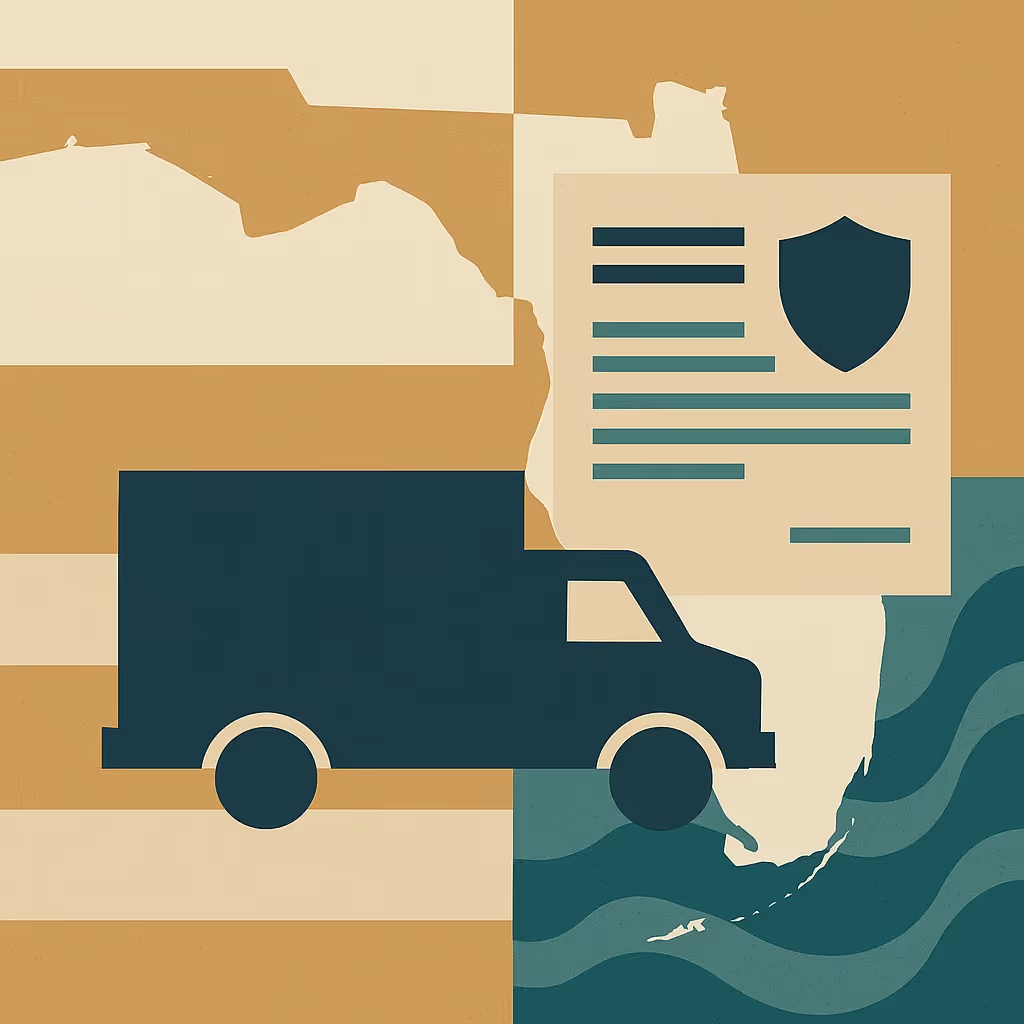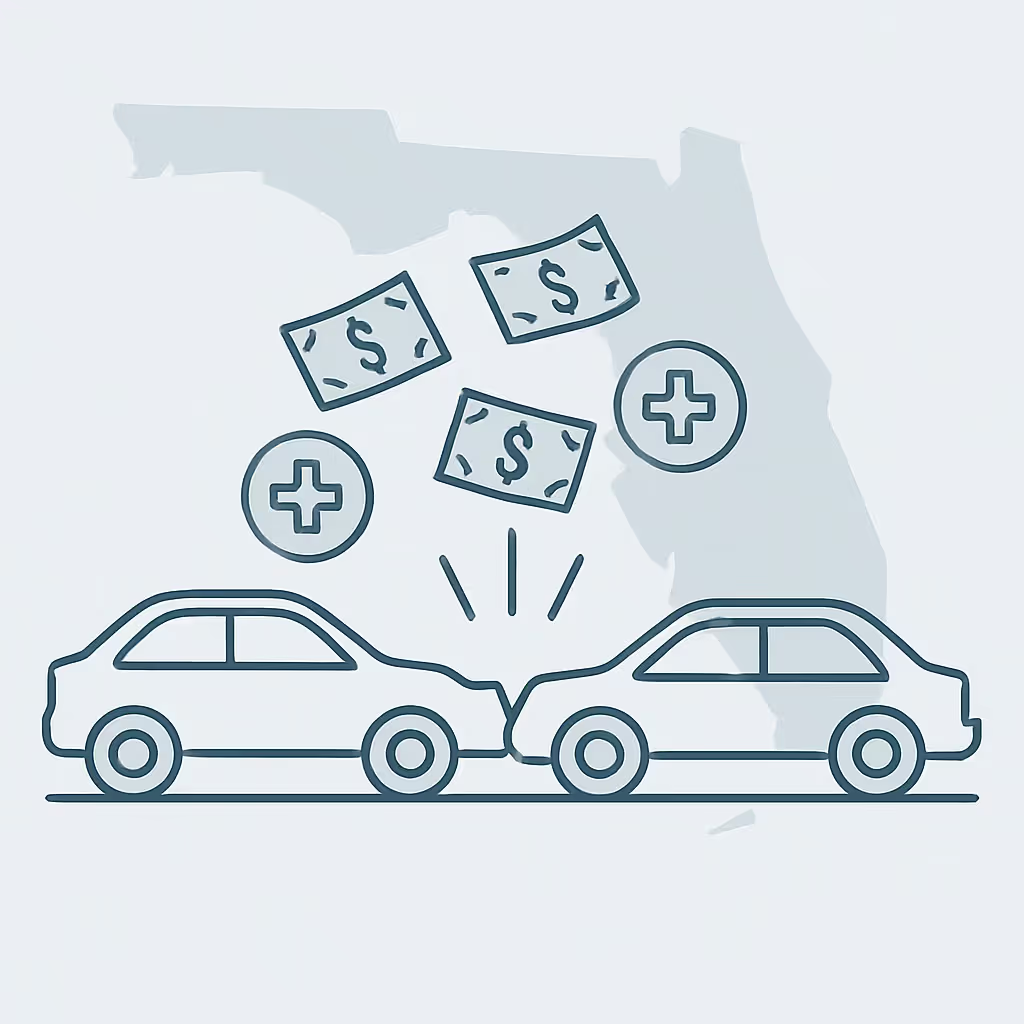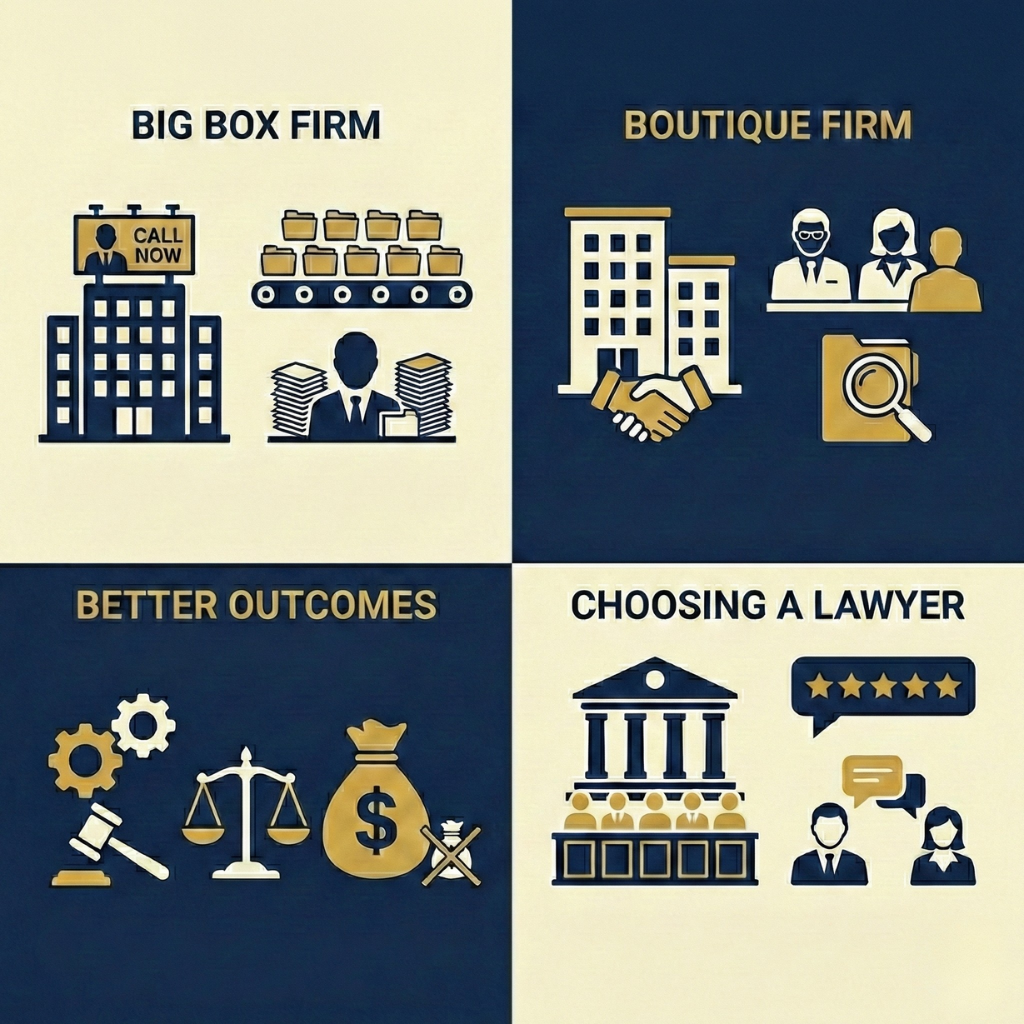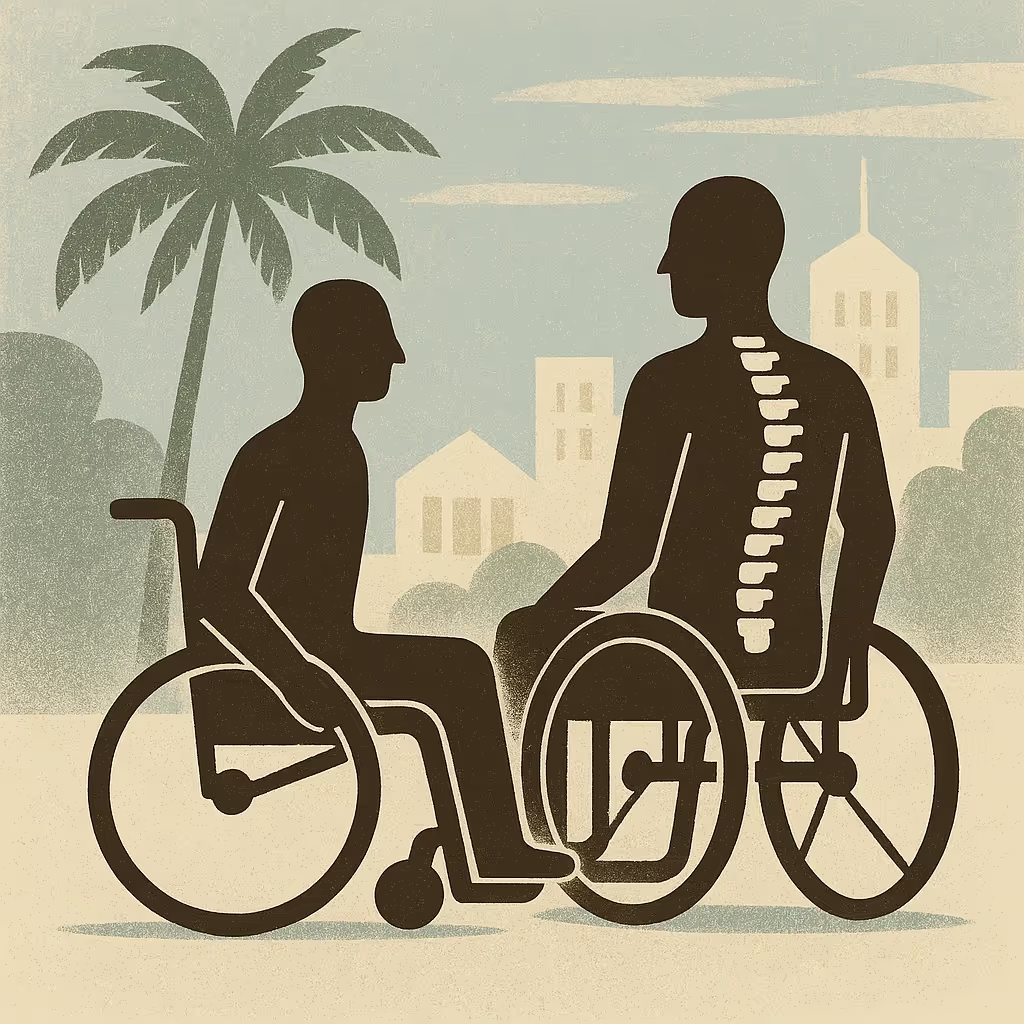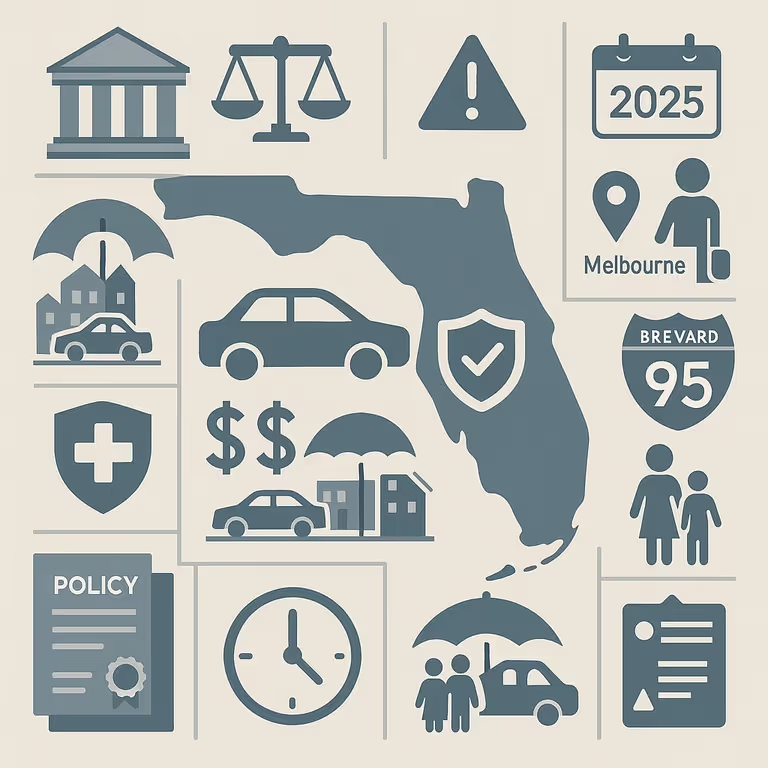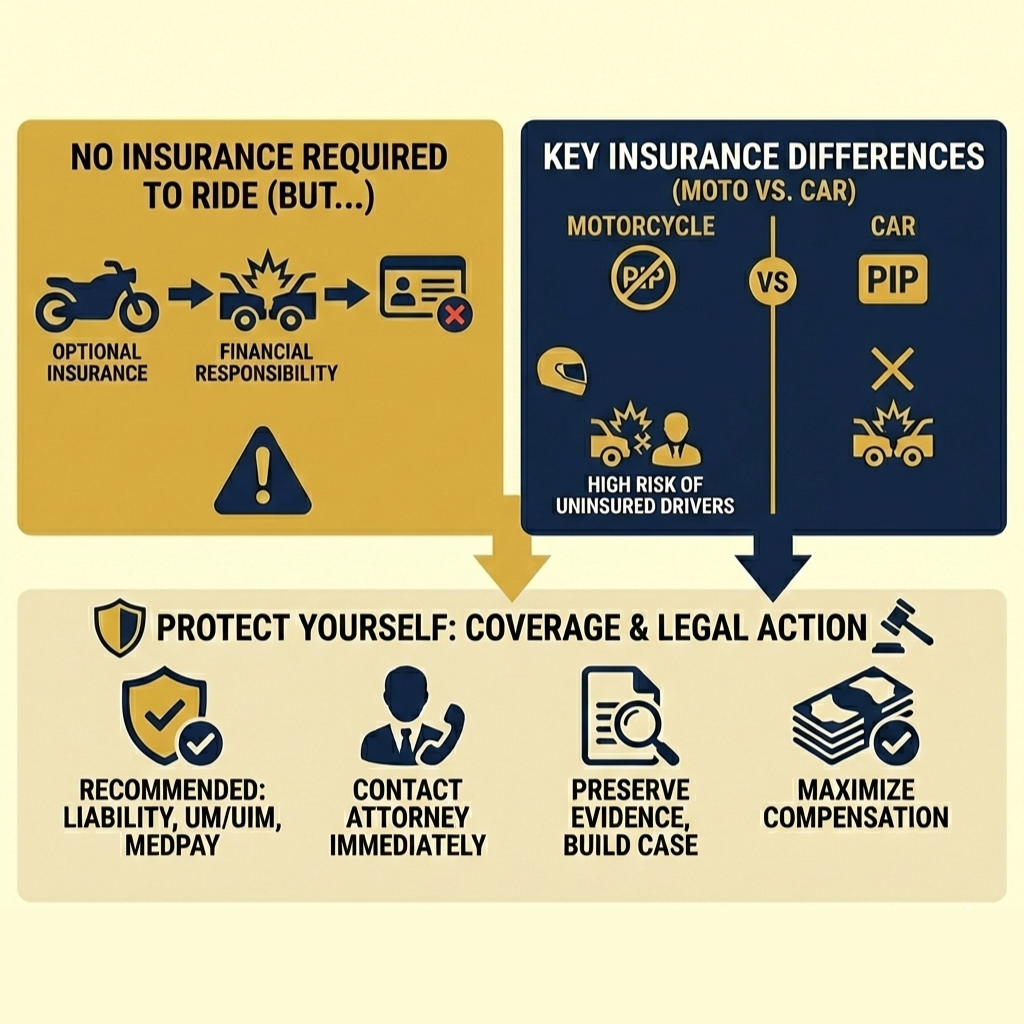Understanding Your Rights: A Complete Guide to Personal Injury Case Types in Florida
Guide to Florida personal injury cases including car accidents, slip & falls, & medical malpractice. Learn about 2023 tort reform changes & your rights.
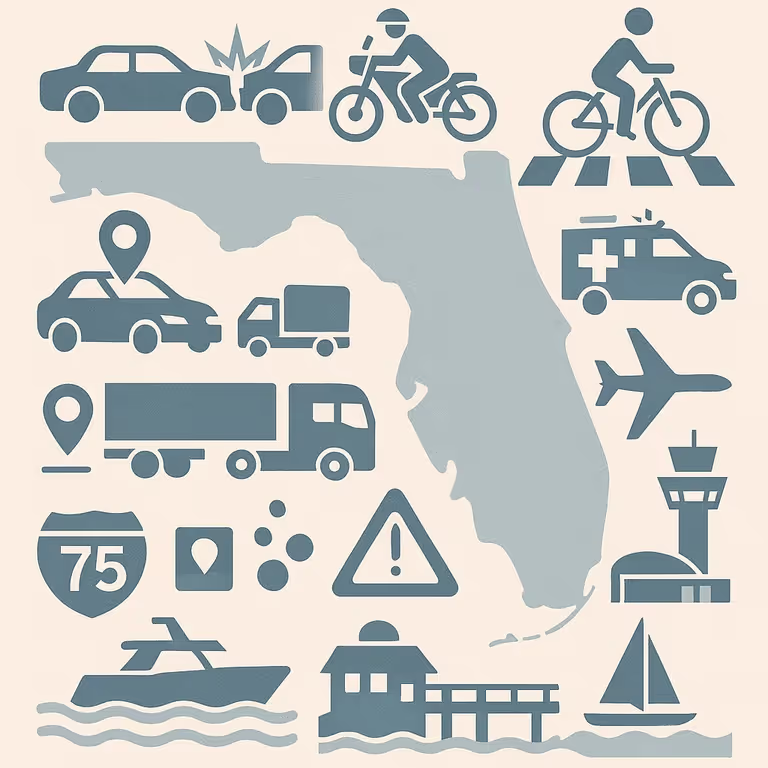
- Florida's 2023 tort reform prevents recovery if you're 51% or more at fault for your injury.
- Most personal injury cases have a two-year statute of limitations with some exceptions requiring shorter notice periods.
- Immediate medical treatment and evidence preservation are crucial for protecting your legal rights and potential compensation.
Worried About Your Injury Case? We'll Review It - Free!


Your Legal Rights Under Florida's New Personal Injury Laws
When life takes an unexpected turn due to someone else's negligence, understanding your legal rights becomes crucial for Florida residents. Whether you've been injured in a car accident on I-95, slipped on a wet floor at a local business, or suffered harm due to medical negligence, knowing what types of personal injury cases exist and your options for recovery can make the difference between getting fair compensation and struggling with mounting bills.
Florida's personal injury legal landscape has undergone significant changes in recent years, particularly with the landmark tort reform legislation passed in March 2023. These changes directly affect how injury cases are handled and what compensation victims can receive. For Melbourne and Brevard County residents, understanding these new rules is essential when navigating the aftermath of an unexpected injury.
Under Florida's current legal framework, most personal injury cases must be filed within two years of the injury date, creating urgent time pressures for victims already dealing with medical treatment and recovery. The new comparative negligence rules mean that if you bear any responsibility for the accident, your compensation may be reduced by your percentage of fault. Most importantly, if you're found to be 51% or more responsible for your injury, you cannot recover damages at all under the updated law.
This comprehensive guide examines the most common types of personal injury cases affecting Central Florida residents, recent legal changes that impact your rights, and practical steps you can take to protect yourself. With over 35 years of experience serving the Brevard County community and a proven track record including the landmark $28.5 million brain injury verdict secured right here in Melbourne, our firm has witnessed how proper legal guidance can transform devastating circumstances into paths toward recovery and justice.
Get your free case evaluation today to understand how recent legal changes may affect your specific situation.

Understanding 2023 Tort Reform and Insurance Changes
Florida's personal injury law underwent the most significant transformation in decades when House Bill 837 became effective on March 24, 2023. These changes fundamentally altered how injury cases are evaluated, settled, and tried, making it crucial for every Floridian to understand their new legal reality.
The Comparative Negligence Game-Changer
Previously, Florida followed a "pure comparative negligence" system, meaning you could recover damages even if you were 99% at fault for an accident, though your compensation would be reduced accordingly. Now, Florida uses "modified comparative negligence," which completely bars recovery if you're found 51% or more responsible for your injury. For example, if a jury determines you were 60% at fault for a car accident because you were speeding, you cannot recover any compensation, regardless of the other party's negligence.
This change significantly impacts settlement negotiations. Insurance companies now aggressively argue that injury victims bear majority fault, knowing that even a 51% finding eliminates their obligation to pay damages. Cases that previously resulted in reduced settlements now face the real possibility of zero recovery.
No-Fault Insurance Under Threat
A critical development is currently unfolding in Tallahassee that could dramatically reshape motor vehicle injury cases. House Bill 1181 would have eliminated Florida's no-fault insurance system entirely. The bill ultimately dies in committee. If enacted, this would have ended the requirement for Personal Injury Protection (PIP) coverage and would have fundamentally changed how car accident victims seek compensation.
Currently, Florida's no-fault system requires most drivers to carry PIP insurance covering 80% of necessary medical expenses up to $10,000, regardless of who caused the accident. This provides immediate medical coverage but limits your ability to sue the at-fault driver unless your injuries meet certain thresholds. The proposed elimination of this system would have allowed injured parties to directly pursue compensation from at-fault drivers but would have also eliminated the guaranteed PIP coverage that provides immediate medical bill relief. Even though this bill did not pass in 2025, it's part of a growing push to make significant changes to Florida's no-fault insurance system.
Melbourne's Legal Advantage
These complex legal changes underscore the importance of working with attorneys who understand both the new laws and local court practices. Melbourne personal injury lawyers who regularly practice in Brevard County courts possess invaluable insight into how local judges and juries respond to these evolving legal standards, potentially making the difference between successful recovery and devastating denial of compensation.

Motor Vehicle and Transportation Injury Cases
Vehicle-related injuries consistently represent the largest category of personal injury cases throughout Florida, with Melbourne and Brevard County experiencing particularly high accident rates due to tourist traffic, population growth, and major highway corridors like I-95 running through the region.
Motor Vehicle Accidents: The Statistics Tell the Story
Florida ranks among the most dangerous states for drivers, with Brevard County reporting hundreds of serious injury crashes annually according to the Florida Highway Safety and Motor Vehicles crash dashboard. The intersection of heavy traffic, tourists unfamiliar with local roads, and retirees with changing vision and reflexes creates a perfect storm for serious accidents. Our firm has secured significant settlements for motor vehicle accident victims, including multiple settlements exceeding $750,000 for clients with severe injuries.
The complexity of car accident cases has increased dramatically since the 2023 tort reform. Insurance companies now routinely hire accident reconstruction experts to argue that injury victims bear majority fault, knowing that a 51% finding eliminates any recovery obligation. This makes immediate evidence preservation and expert legal representation more critical than ever for protecting your rights.
Motorcycle Accidents: Heightened Vulnerability
Florida's year-round riding weather makes motorcycle accidents a persistent concern, with riders facing catastrophic injuries at much higher rates than car occupants. Brevard County's coastal roads and tourist areas create additional hazards as drivers often fail to notice motorcyclists. Our experience includes securing substantial settlements for motorcycle accident victims, recognizing that these cases often involve life-altering injuries requiring extensive long-term care and compensation.
Bicycle and Pedestrian Accidents: Growing Concerns
Melbourne's efforts to become more bicycle and pedestrian-friendly have increased the number of people using alternative transportation, but infrastructure improvements haven't kept pace with usage. Tourist areas near the beaches and downtown Melbourne see regular conflicts between vehicles and non-motorized traffic. The vulnerability of cyclists and pedestrians means these accidents often result in severe injuries or fatalities, requiring experienced legal representation to secure adequate compensation for medical treatment, lost income, and long-term care needs.
Rideshare and Commercial Vehicle Complications
Uber and Lyft accidents present unique insurance challenges, as coverage depends on whether the driver was actively transporting passengers, en route to a pickup, or offline entirely. Commercial vehicle accidents involving delivery trucks, buses, or large commercial vehicles often involve federal regulations and multiple insurance policies, requiring attorneys with specific experience in these complex cases.
Aviation and Boating: Unique Florida Risks
Melbourne International Airport and Florida's extensive waterways create additional injury risks. Aviation accidents, whether involving commercial aircraft or private planes, require understanding of federal aviation regulations. Similarly, boating accidents on the Indian River or Atlantic Ocean involve maritime law complexities that demand specialized legal knowledge.
For any vehicle-related injury, consulting experienced personal injury lawyers immediately after the incident helps preserve crucial evidence and protect your rights under Florida's evolving legal landscape.

Premises Liability and Property-Related Injuries
Property owners throughout Florida have a legal duty to maintain reasonably safe conditions for visitors, but when they fail in this responsibility, serious injuries often result. From shopping centers to private homes, property-related accidents represent a significant category of personal injury cases requiring careful legal analysis.
Slip and Fall Accidents: More Than Just Carelessness
Florida's frequent rain, high humidity, and tourist-heavy retail environments create conditions where slip and fall accidents occur regularly. However, proving a property owner's liability requires demonstrating they knew or should have known about the dangerous condition and failed to adequately warn visitors or correct the problem. Our firm has secured settlements including over $800,000 for premises liability cases where property owners' negligence resulted in serious injuries.
The challenge in slip and fall cases lies in Florida's comparative negligence rules. Property owners often argue that injury victims should have watched where they were walking or avoided obvious hazards, attempting to assign majority fault to avoid liability entirely under the new 51% rule.
Negligent Security: When Protection Fails
Hotels, apartment complexes, retail businesses, and other commercial properties must provide adequate security measures when they're aware of criminal activity risks. Negligent security cases arise when property owners fail to install proper lighting, security cameras, locks, or security personnel, and someone is attacked, robbed, or injured as a result.
Melbourne's tourism industry and growing population have created increased security concerns at various commercial properties. These cases require proving that the property owner knew about security risks and failed to take reasonable protective measures, often involving expert testimony about industry security standards.
Swimming Pool and Water Accidents: Florida's Hidden Dangers
Florida's pool culture creates unique liability issues, particularly involving children who may access pools without permission. Property owners must secure pools with proper barriers, alarms, and safety equipment. Drowning incidents, near-drowning cases, and diving accidents can result in catastrophic brain injuries or death, making these among the most serious premises liability cases.
Construction Site Dangers
Brevard County's ongoing development has created numerous construction zones where both workers and bystanders face injury risks. While workers' compensation typically covers employee injuries, third-party liability may exist for non-employees injured due to unsafe construction practices. Our firm secured a remarkable $1.8 million settlement for a construction site accident, demonstrating the potential for substantial recovery in these complex work injury cases.
Dog Bite and Animal Attack Liability
Florida follows a strict liability rule for dog bites, meaning owners are responsible for injuries caused by their dogs regardless of the animal's previous behavior or the owner's knowledge of viciousness. This applies when the injury occurs on public property or when the victim is lawfully on private property. Dog bite cases often involve children and can result in significant medical expenses, scarring, and emotional trauma requiring comprehensive compensation.
Property-related injury cases require immediate investigation to preserve evidence and identify all potentially responsible parties. Consulting personal injury attorneys or premises liability lawyers ensures that crucial evidence is preserved and your rights are protected under Florida's current legal framework.

Medical Malpractice and Specialized Negligence Claims
Beyond common accident scenarios, certain types of personal injury cases involve professional negligence or specialized circumstances requiring attorneys with particular expertise and resources to effectively pursue compensation.
Medical Malpractice: Complex Requirements
Medical malpractice cases in Florida involve strict procedural requirements designed to screen out frivolous claims but which can trap legitimate victims without proper legal guidance. Before filing a lawsuit, you must obtain an expert witness affidavit from a qualified medical professional stating that your treatment fell below accepted standards and caused your injury.
These cases require substantial financial resources for expert witnesses, medical record review, and often years of litigation. However, when medical professionals breach their duty of care, the resulting injuries can be catastrophic, requiring lifetime medical care and compensation for lost earning capacity. Florida's medical malpractice laws also include various immunity provisions and damage caps that require experienced legal navigation.
Workplace Injuries Beyond Workers' Compensation
While most workplace injuries fall under workers' compensation insurance, certain situations allow injured workers to pursue additional compensation through personal injury lawsuits. These include cases involving defective equipment manufactured by third parties, injuries caused by other companies' negligence at multi-employer worksites, or intentional harm by employers.
Construction sites, manufacturing facilities, and other industrial environments often present complex liability scenarios involving multiple contractors, equipment manufacturers, and safety regulation violations. These cases require understanding both workers' compensation law and traditional personal injury principles to maximize recovery.
Product Liability: When Products Cause Harm
Defective products injure thousands of Floridians annually, from faulty medical devices to dangerous consumer goods. Product liability cases may involve design defects, manufacturing errors, or inadequate warnings about known risks. These cases often become complex multi-district litigations involving hundreds or thousands of victims nationwide.
Recent product liability issues have included defective hernia mesh devices, dangerous pharmaceutical side effects, and automotive defects causing accidents. Success in these cases requires attorneys with resources to battle large manufacturers and their legal teams while gathering expert testimony about product design and safety.
Nursing Home Neglect and Elder Abuse
Florida's large elderly population unfortunately experiences significant nursing home abuse and neglect. These cases involve inadequate medical care, medication errors, slip and falls due to poor supervision, pressure sores from neglect, and sometimes outright abuse by staff members.
Nursing home cases require understanding federal regulations governing care facilities as well as Florida's specific elder protection laws. Our experience includes securing a $3 million judgment against an assisted living facility for wrongful death, demonstrating the serious accountability these institutions face when they fail in their care obligations.
Catastrophic Brain and Spinal Cord Injuries
Traumatic brain injuries and spinal cord damage represent the most serious personal injury cases, often requiring lifetime care and resulting in permanent disability. These cases demand thorough understanding of medical complexities, future care needs, and economic impacts on both victims and their families.
Our firm's $28.5 million brain injury verdict in Melbourne demonstrates the substantial compensation possible in these cases, but also reflects the enormous resources and expertise required to achieve such outcomes. Brain injury lawyers must work closely with medical experts, life care planners, and economists to properly value these devastating injuries.
When professional negligence or catastrophic injuries occur, the stakes are simply too high to navigate the legal system without experienced representation capable of taking on powerful defendants and their insurance companies.
Your Next Steps: From Injury to Recovery
Understanding the types of personal injury cases is only the beginning. When you're facing mounting medical bills, lost income, and uncertainty about your future, knowing what actions to take can determine whether you receive fair compensation or struggle financially for years to come.
Immediate Actions After Any Injury
Your first priority must always be medical treatment. Even if your injuries seem minor initially, adrenaline and shock can mask serious problems that become apparent days or weeks later. Seeking immediate medical attention also creates crucial documentation linking your injuries to the incident.
Preserve evidence whenever safely possible. Photograph accident scenes, damaged vehicles, hazardous conditions, or defective products. Collect contact information from witnesses and parties involved. However, avoid discussing fault or making statements to insurance companies beyond basic factual information. They often use these conversations against you later.
When to Contact an Attorney
While not every minor injury requires legal representation, certain situations demand immediate attorney involvement. Contact a lawyer if you've suffered serious injuries, if fault is disputed, if multiple parties might be responsible, or if you're dealing with commercial vehicles, government entities, or complex insurance situations.
Florida's two-year statute of limitations means waiting too long can permanently bar your claim. However, certain cases require much shorter notice periods. Claims against government entities often require notice within six months, and some contract situations have even shorter deadlines.
What to Expect from the Legal Process
Personal injury cases typically begin with investigation and evidence gathering. Your attorney will review medical records, interview witnesses, consult experts, and demand relevant documentation from responsible parties. Many cases resolve through negotiation, but preparation for trial often strengthens settlement positions.
The process can take months or years depending on injury severity and legal complexity. However, you shouldn't wait for resolution to get medical treatment or financial relief. Experienced attorneys often help clients access treatment and manage financial pressures during litigation.
Melbourne/Brevard County Legal Advantages
Working with attorneys familiar with local courts, judges, and opposing counsel provides significant strategic advantages. Local experience helps predict how cases might unfold, which settlement approaches work best, and how juries typically respond to different types of evidence. This knowledge, combined with deep community roots spanning over 35 years, creates trust and credibility that often influences case outcomes.
Understanding Our Contingency Fee Approach
We handle personal injury cases on a contingency fee basis, typically ranging from 33% to 40% depending on case complexity and whether trial is required. Importantly, if we don't secure compensation for you, you pay no attorney fees. Additionally, we advance all case costs including expert witnesses, medical record retrieval, and investigation expenses, so you're not required to pay anything upfront while focusing on your recovery.
We believe in regular communication throughout your case, providing updates as developments occur and ensuring you understand each phase of the process. This approach reflects our commitment to treating each client's case with the attention and resources it deserves.
Ready to move forward? Call us at (321) 723-6591 for your free consultation, or reach out to our experienced personal injury attorneys to discuss your specific situation.
Frequently Asked Questions
What types of personal injury cases are most common in Brevard County?
Motor vehicle accidents represent the largest category, including car, motorcycle, bicycle, and pedestrian accidents. Property-related injuries like slip and fall accidents are also common due to tourism and retail activity. Boating accidents occur regularly given our coastal location, and medical malpractice cases arise from our numerous healthcare facilities.
How has Florida's 2023 tort reform affected personal injury cases?
The most significant change involves comparative negligence rules. Previously, you could recover compensation even if you were mostly at fault for an accident. Now, if you're found 51% or more responsible, you cannot recover any damages. This has made fault determination crucial in every case and increased the importance of experienced legal representation.
What should I do immediately after being injured due to someone else's negligence?
Seek medical attention immediately, even for seemingly minor injuries. Document the scene with photographs if safely possible, collect witness information, and preserve any physical evidence. Avoid discussing fault with anyone except your attorney, and don't provide detailed statements to insurance companies without legal guidance.
How long do I have to file a personal injury lawsuit in Florida?
Generally, you have two years from the injury date, but some situations have shorter deadlines. Claims against government entities often require notice within six months. Certain contract cases or specific injury types may have different time limits, making prompt legal consultation essential.
What costs will I be responsible for in a personal injury case?
We handle cases on contingency fees (typically 33-40% of recovery) and advance all case costs including expert witnesses, medical records, and investigation expenses. You pay no attorney fees if we don't secure compensation, and you're not responsible for upfront costs while focusing on recovery.
How do I know if my case is worth pursuing?
Cases typically merit legal action when injuries are serious, fault is clear, responsible parties have insurance or assets to pay damages, and evidence supports your claims. Even seemingly minor injuries can have significant value if they result in ongoing medical treatment or lost income. A free consultation can help evaluate your specific situation.
This article provides general information and is not a substitute for legal advice. Laws can change, and the details of your situation matter. For personalized guidance, please contact a qualified Florida personal injury attorney.
Sources and Further Reading
- Florida Tort Reform HB 837 Analysis – Jimerson Firm
- Florida Personal Injury Laws Overview – Nolo
- Florida Statute 95.11 - Statute of Limitations – Florida Senate
- Florida Comparative Negligence Law F.S. 768.81 – Florida Legislature
- Florida PIP Insurance Requirements – FL Highway Safety
- Major Florida Tort Reform and Insurance Changes – Holland & Knight
- Florida No-Fault Insurance Elimination Proposal HB 1181 – Florida Phoenix
- Melbourne FL Road Safety Statistics – Make Roads Safe
- Florida Traffic Crash Reports Dashboard – FL Highway Safety
- Florida Medical Malpractice Expert Witness Requirements F.S. 766.202 – Florida Legislature
- Florida Dog Bite Strict Liability Law F.S. 767.04 – Florida Legislature
- Drowning Prevention Facts and Statistics – Centers for Disease Control
Please remember, this article provides general information based on Florida law and is intended for educational purposes only. It does not constitute legal advice and should not be relied upon as such. Every case is unique, and the information here may not apply to your specific circumstances. Reading this article does not create an attorney-client relationship. For advice tailored to your situation, please consult with a qualified attorney.
Not Sure What To Do Next? We Can Help – Fast & Free.
Worried About Your Injury Case?
We'll Review It - Free
Don’t miss an article
Florida law, local insights, and the occasional dog pic.
Delivered straight to your inbox.
More articles
Browse all articlesFree Case Review
Get a complimentary review of your case

.webp)


.png)
